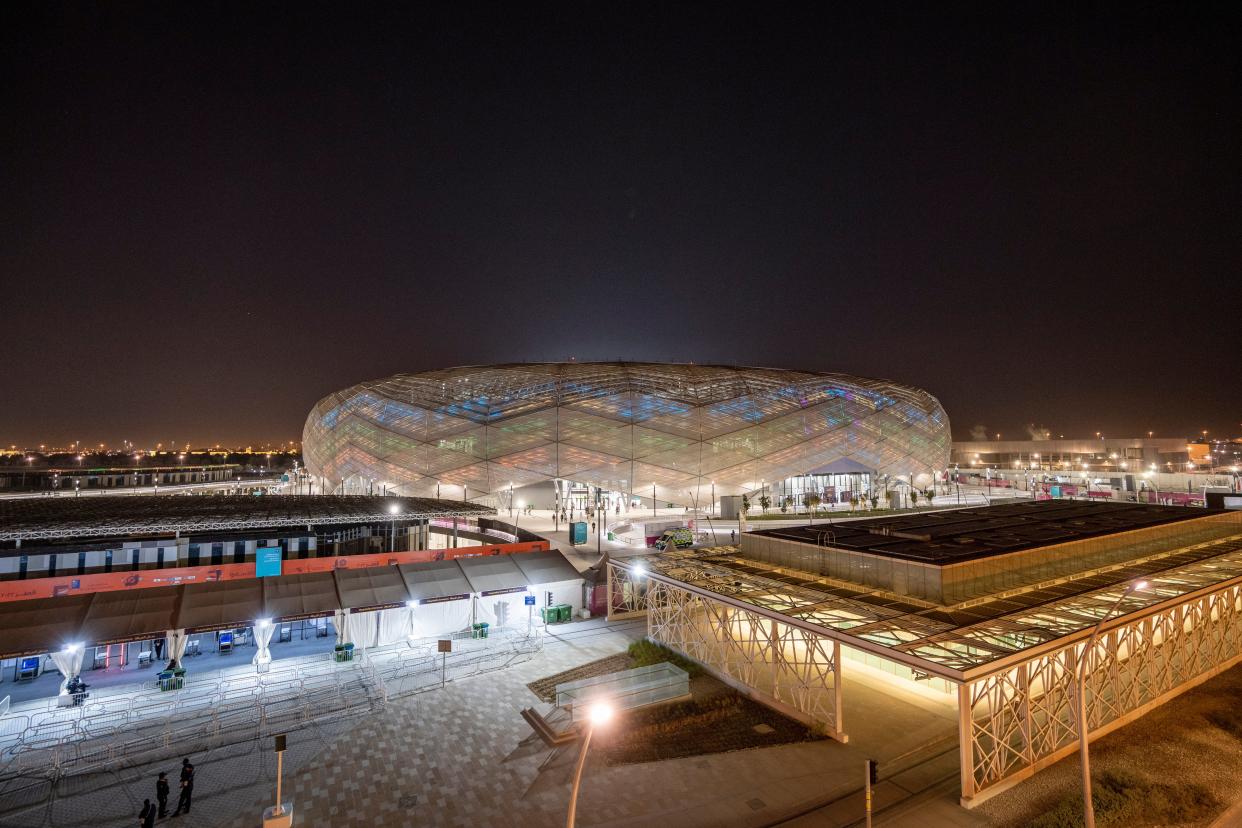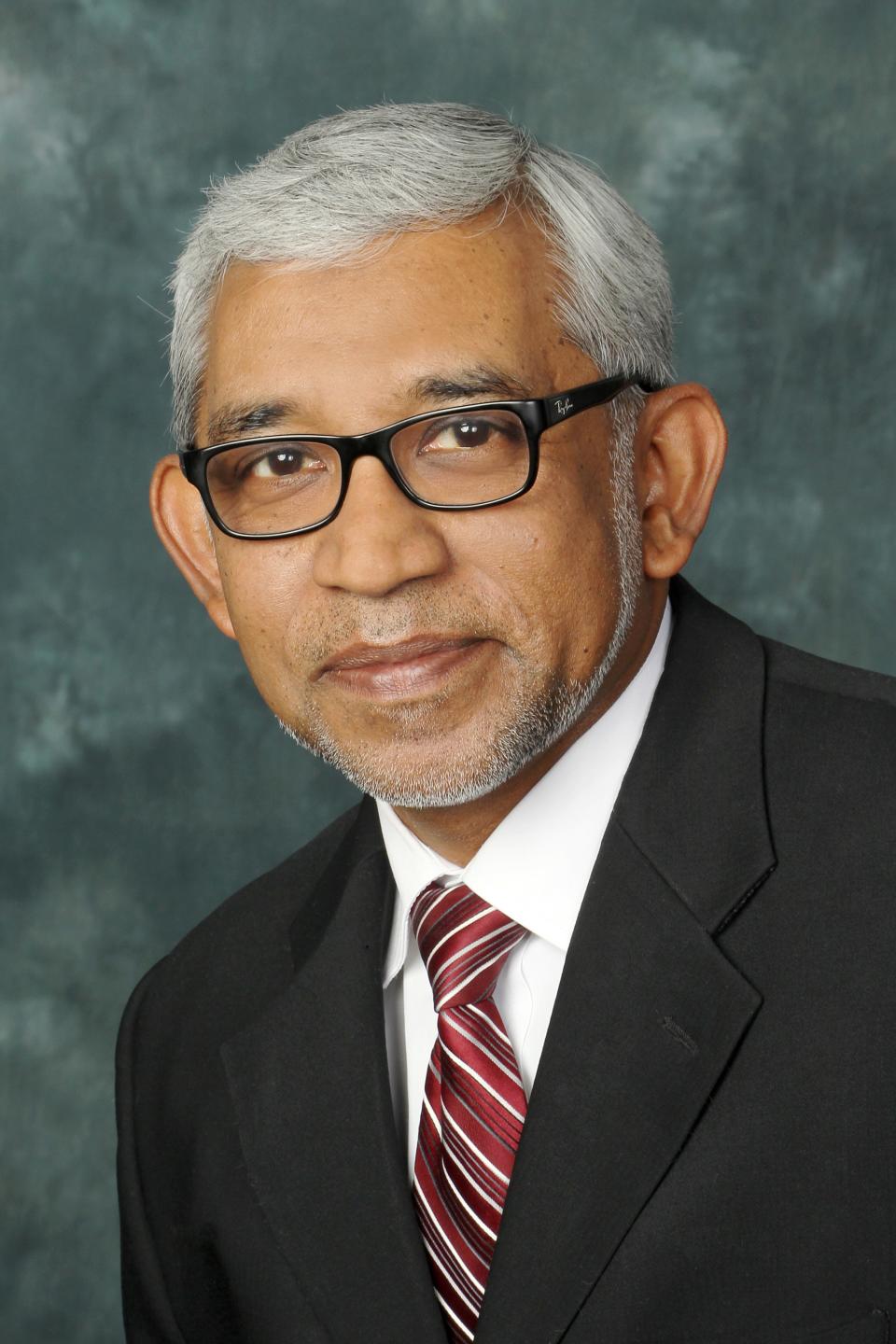Parvez Ahmed: Qatar's human rights record brings plenty of asterisks to 2022 World Cup

- Oops!Something went wrong.Please try again later.
For a month, starting Sunday, the eyes of the world will be centered on a tiny nation in the Middle East. The conversation, for a change, will not be about oil or terrorism but rather center on the beautiful game of soccer or — as the rest of the world calls it — football. Ever since Qatar was awarded the 2022 FIFA World Cup, it has been a source of consternation not only for the billions of soccer fans around the world but even more so for human rights advocates.
As an avid soccer fan, let me start with how boneheaded the decision was to award Qatar the premiere sporting event, which is estimated to draw 5 billion television viewers worldwide. For comparison, about 100 million people watch the Super Bowl, the largest TV spectacle in the U.S.
Ex-FIFA president: Sepp Blatter's criticism of World Cup in Qatar comes 12 years too late
World Cup 2022: U.S. roster revealed as youngest in tournament
The World Cup is typically played over the summer after professional clubs around the world have completed their seasons. But summer temperature in Doha, Qatar, averages 105°F, which is not conducive to playing outdoor soccer.
To counter the obvious idiocy of playing summer soccer in the desert, during the bid, Qatar suggested a bunch of sci-fi ideas from air conditioning outdoor stadiums to using floating “solar clouds” to shade the playing field. None of them were remotely feasible, which then led FIFA, the apex body for global soccer, to reschedule the tournament to winter.
But this meant major soccer leagues are now pausing their seasons so that their stars can chase world glory. Interrupting any sporting season is anathema to its fans. It not only breaks the flow of a season but also causes players to not have enough recovery time between the pause in their club seasons and the start of the World Cup. Major stars, from Senegal’s Sadio Mane to France’s Paul Pogba, will be missing in action. With so many good players absent, the World Cup is already off to an asterisked start.

This taint is nothing compared to the stink arising from Qatar’s abysmal human rights record. A year ago the British newspaper The Guardian revealed that 6,500 migrant workers from, “India, Pakistan, Nepal, Bangladesh and Sri Lanka have died in Qatar since it won the right to host the World Cup 10 years ago.” The actual death toll is significantly higher as labor records in Qatar are not categorized by occupation or place of work.
In addition, homosexuality is illegal in Qatar, raising questions about the safety of LGBTQ fans, officials and players. Knowing these facts, can we avid fans watch this year’s games the same way we did during previous World Cups?
Qatar’s human rights records is not the only stink.Ever since Qatar and Russia were awarded the 2018 and 2022 tournaments respectively, allegations about corruption have swirled. Executive committee members of FIFA, who ultimately vote to award the World Cup to bidding nations, were filmed accepting cash bribes. The U.S. Justice Department has filed a sweeping indictment charging that bribery and money laundering led to both Russia and Qatar winning their bids in 2010. The case goes to trial next January.
Showdown of the GOATs: Messi and Ronaldo look set for final shot at World Cup glory
Letters: Women's Board marks five decades of service to pediatric patients at Wolfson
In Qatar, fans will be asked to adhere to the nation’s “Muslim sensibilities” of strict dress code, avoiding public display of affection and (with a few exceptions) a general prohibition on consuming alcohol. It is ironic that the “Muslim sensibilities” expected to be enforced do not include upholding worker rights. The irony is palpable given that Islamic sacred texts and prophetic traditions, all emphasize the fair treatment of workers.
The Quran unequivocally states — in Chapter 7 verse 85 and Chapter 83 verses 1-6 — that employers are not to withhold what is due to their employees. Workers dying as a result of harsh working conditions should be a greater source of concern than trivial traditions of “modesty.”
Some in the Arab and Muslim world have bristled at the scrutiny Qatar is receiving for the 2022 cup while Russia, whose human rights records are also abysmal, did not receive similar scorn in 2018. Fair point. But the Quranic standard of “O you who believe, stand out firmly for justice …” (4:135), exhorts Muslims to do better, not hide behind religion to justify the unjustifiable.
I am truly conflicted. On one hand I do not want to boycott the game that I love and grew up playing. On the other, how do I dishonor my faith traditions by lending tacit support to injustices of pharaonic proportions? As of this moment, I am leaning toward a boycott. But once the games begin and my social media feeds get overwhelmed with the beauty and drama elite soccer players are capable of producing, will I be able to stay away?

Parvez Ahmed is professor of finance at the University of North Florida and a frequent commentator on the American Muslim experience.
This guest column is the opinion of the author and does not necessarily represent the views of the Times-Union. We welcome a diversity of opinions.
This article originally appeared on Florida Times-Union: Parvez Ahmed: Hosting 2022 World Cup in Qatar adds plenty of asterisks

